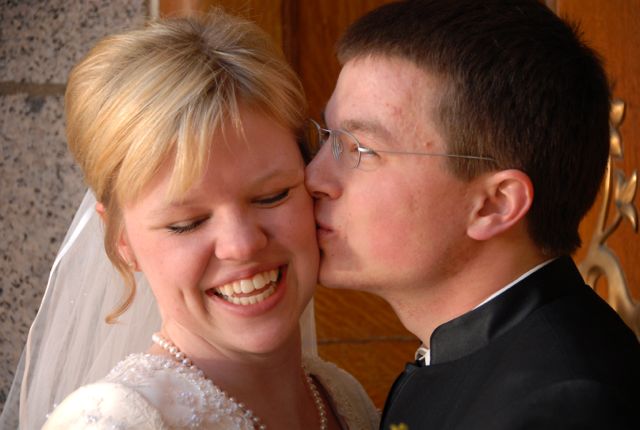Even before the bloggernacle exploded last week with discussions/arguments about the LDS Church’s response to the Ordain Women movement, I had asked Stephanie Lauritzen to write a guest post about Mormon trolls.
As the founder of “Wear Pants to Church Day” in late 2012, Lauritzen has seen the dark side of trolldom. Some fellow Mormons questioned her eternal worth — and even threatened that she’d be entering said eternity sooner rather than later because they would shoot her dead with the guns they brought to church.
Lovely.
So in the spirit of fostering greater civility, Lauritzen shares three ways to disagree with fellow Mormons online in healthy ways. — JKR
By Stephanie Lauritzen
The world of online Mormonism is weird.
As Mormons, we believe we must “stand as witnesses of God in all times, and in all things, and in all places” (Mosiah 18:9). Where better to stand as witnesses of God than online? The Internet is public, and you don’t even have to leave your couch! Furthermore, for Mormon feminists, LGBT allies, or other non-traditional Mormons, the Internet often represents the only place we can express alternate opinions freely.
Odds are, if you’ve shared an opinion about recent events in Mormonism, from Utah’s ban on same-sex marriage to the ordination of women, you’ve experienced a degree of backlash.
A friend of mine recently discovered the “other” inbox on her Facebook account, and was horrified to read dozens of messages from strangers criticizing the online profile she’d submitted to Ordain Women. Many of the messages insisted that she leave the church. Some included vague threats of violence, both physically and spiritually.
I’ve received similar messages over the years, including death threats, and they break my heart. Underneath an armor of snark lives a sensitive spirit, and I don’t do well when online criticism turns from constructive dialogue to meanness.
In many ways, I’m ill equipped to give advice on how to navigate Mormonism’s online world. My go-to reaction is overwhelming sadness. I often feel like a failure when I’m not strong enough to respond to criticism gracefully or bravely. During the first Wear Pants to Church Day event, I made the mistake of believing and internalizing each message.
However, over time I developed some healthier responses, and I rely on these every time a troll shows up in my inbox.
1. Realize that people are complicated.
The interesting thing about nasty Facebook messages is seeing the accompanying profile photo. I’ve often wondered how someone with such a beautiful family or lovely wedding picture could so easily condemn me to hell. People are complex. Very few are truly awful or unkind; rather they are normal human beings who sometimes make mistakes. I’ve learned to try and see my detractors as whole people, not just villainous writers of hate mail. Choosing to view people with compassion doesn’t mean I agree with them, but it helps diffuse the pain when I realize the person writing me is inevitably hurting too. Happy people don’t threaten people they disagree with, but broken people do.
2. Understand that most people see others as a mirror of themselves.
It’s an unfortunate existential reality that we never really know what the world looks like for another person. I recently described how the lessons I learned from Mormonism eventually led me away from activity in the church. Many readers accused me of claiming that anyone who stayed in the church was a mindless drone. They didn’t read the article as the personal narrative I intended, but as a direct criticism of their life choices, and they were angry. But I’ve been guilty of this too. I recently read a blog post by a friend detailing how her testimony helped her decide to quit her job and stay home with her child. I hated her post. Despite the fact that she was very clear that her decision was personal, I believed she was criticizing working mothers as less devout. Had I chosen to write a nasty comment, it would have reflected my own insecurities, not her choice. I realized that my reflection and my friend were not the same person. Nasty comments are rarely about you, but the reflection you represent.
3. Believe in the goodness of humanity whenever possible . . .
. . . especially when dealing with family and friends. When I found a blog comment written by a friend accusing me of apostasy, I wanted to write something mean in return. Instead, I wrote her privately, explaining why her comments hurt me. She responded with an apology, and we salvaged our friendship. It is easy for people to write mean things online because they can’t see the face of the person they attack. Reminding people of your humanity reminds them of their own.
When all of these suggestions fail, take a walk. Get off the Internet for a few days (or hours, you addict.) Remember that your relationship with the divine does not reside in the comments section or your inbox, but in your heart. And when you despair, remember how God feels about those with broken hearts and contrite spirits. It is going to be all right.
Stephanie Lauritzen blogs at Mormon Child Bride and is a high school English teacher by day.







